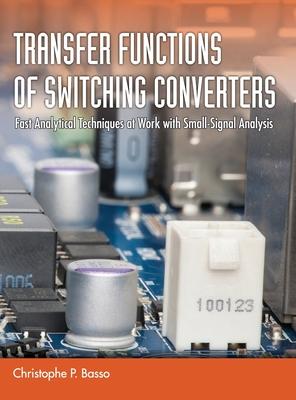Transfer Functions of Switching Converters teaches readers how to determine transfer functions of switching power supplies commonly encountered in consumer and industrial markets. The book starts with a smooth introduction to switching cells, going into the details of the first steps of linearization and small-signal modulation. You will then learn how the PWM switch model was derived and how to apply it to the basic structures operated in fixed switching frequency and various operating conditions like continuous and discontinuous modes in voltage- or current-mode control. The model is extended to other control schemes like quasi-resonance, constant on- and off-time converters, all with an associated small-signal version. The following chapters explore the founding structures like the buck, the boost and buck-boost cells, later covering their isolated versions like forward or flyback converters. The last chapter deals with more complicated structures like Ćuk, Zeta, SEPIC and LLC.

Transfer Functions of Switching Converters
Transfer Functions of Switching Converters teaches readers how to determine transfer functions of switching power supplies commonly encountered in consumer and industrial markets. The book starts with a smooth introduction to switching cells, going into the details of the first steps of linearization and small-signal modulation. You will then learn how the PWM switch model was derived and how to apply it to the basic structures operated in fixed switching frequency and various operating conditions like continuous and discontinuous modes in voltage- or current-mode control. The model is extended to other control schemes like quasi-resonance, constant on- and off-time converters, all with an associated small-signal version. The following chapters explore the founding structures like the buck, the boost and buck-boost cells, later covering their isolated versions like forward or flyback converters. The last chapter deals with more complicated structures like Ćuk, Zeta, SEPIC and LLC.